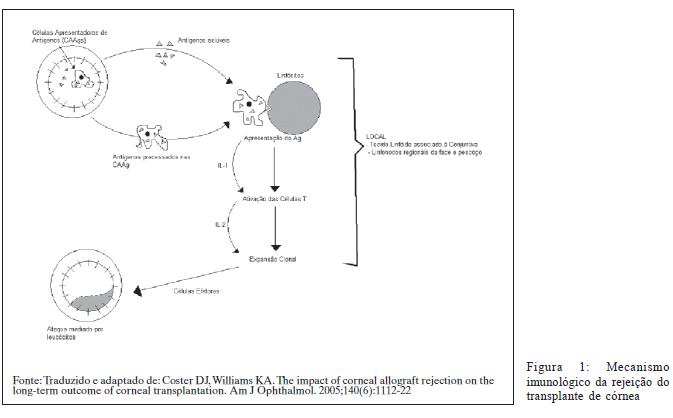Corneal transplant rejection is an immunological cellular process that attacks the donor cornea and may cause its failure. It is the most common cause of corneal transplant failure.The most common factors for rejection are corneal neovascularization, previous graft failure, anterior synechiae, large or descentered graft, intraocular inflammation and previous anterior segment surgeries. It commonly presents with hyperemia, ocular pain, corneal edema, and anterior chamber inflammation. Corneal graft rejection can be classified as epithelial rejection, subepithelial rejection, stromal rejection, endothelial rejection, combined stromal and endothelial rejection, and rejection in a repeat graft. Prevention of immune-mediated graft rejection can be achieved through meticulous surgical technique, lamellar surgery, enhanced compatibility between donor tissue and receptor cornea, and pharmacologic strategies. Corticosteroids are still the gold standard therapy in corneal rejection management and can be used in many different dosages and routes of administrations. The authors propose a protocol for the treatment of corneal allograft rejection.
Corneal transplantation; Graft rejection; Graft rejection; Graft rejection; Steroids; Review







